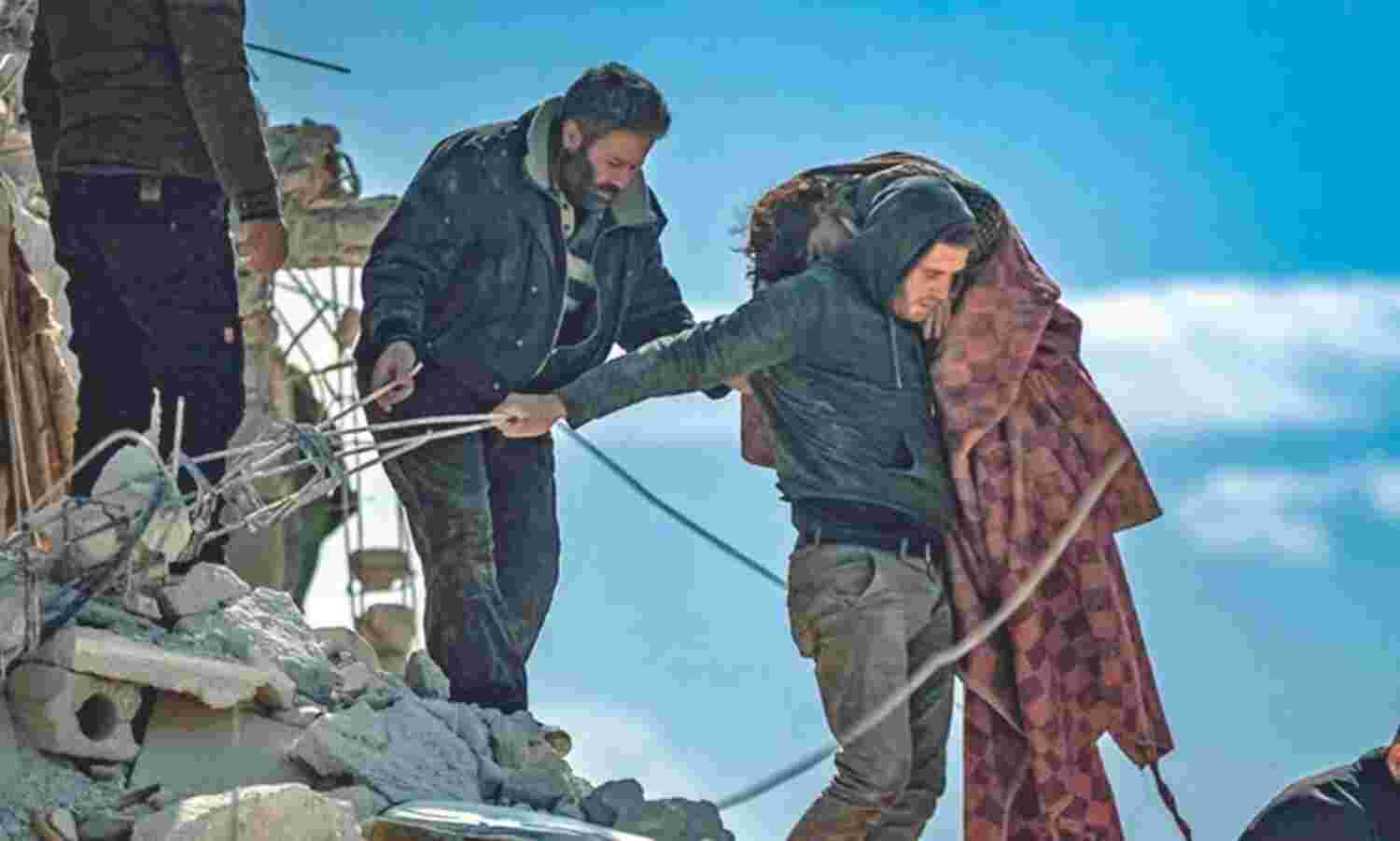Syrian crisis: Will UN investigate quake aid delays?
The UN says over 4,500 people were killed by the earthquake in northwest Syria. More than 8,700 were injured and over 11,000 are homeless. Various reasons have been given for the delay in aid reaching rebel-held, northwest Syria.

After the February 6 earthquake hit Turkey and Syria, Muhannad Aswad and surviving friends and neighbours spent the first four hours using their bare hands to dig desperately through the rubble of their former homes. They heard voices under the debris, including those of children. Aswad heard his own brother. “[My brother] Ammar was a journalist and a relief worker. He was asking for help from under the rubble,” he recalled. “We waited for help,” said Aswad, who lives in Salqin, northwest Syria, in an area controlled by forces that oppose the government of Syrian dictator Bashar Assad. “But nobody came.” In the end, Aswad lost 25 members of his family in the earthquake, including Ammar. When outside help finally did arrive, “it was much, much too late,” Aswad said.
The UN says over 4,500 people were killed by the earthquake in northwest Syria. More than 8,700 were injured and over 11,000 are homeless. Various reasons have been given for the delay in aid reaching rebel-held, northwest Syria. For example, aid organizations based just over the border in Turkey were also affected by the earthquake — humanitarian workers died and headquarters were wrecked — and some roads into Syria were damaged.
But the UN has come in for particular criticism because, as a coordinating organization, it did not call for international urban search and rescue teams to address the dire situation in this opposition-held part of Syria. The UN waited for permission from the Syrian government, headed by dictator Bashar Assad, to do so. This is despite the fact that, for some time now, legal experts have been saying that the UN doesn’t need permission for this kind of cross-border aid. It also ignores the reality on the ground: The Syrian government doesn’t actually control these borders anyway. Syrian rebel groups and the Turkish government do. Head of the UN’s relief efforts, Martin Griffiths, had previously apologized for his organization’s failure on social media.
After the earthquake, Raed Saleh, the head of Syria’s White Helmets civil defense force, told journalists the UN had not helped quickly enough and he asked for an apology and an investigation.
“Undoubtedly, the response failures in northwest Syria, including of the UN, have directly caused avoidable deaths, injury and morbidity,” a group of researchers confirmed in a March issue of British medical journal, The Lancet. They also called for “an independent UN-mandated commission to investigate.” Earlier this week, a UN body, the Independent International Commission of Inquiry on Syria, joined the growing chorus.
The commission, which was set up in 2011 to monitor human rights abuses in Syria, was presenting its 27th report to the UN’s Human Rights Council in Geneva. During the meeting, commission chairman Paulo Pinheiro said the body supported “calls by many Syrians and others for a thorough review of the effectiveness of the UN and the wider international community’s humanitarian response to the disaster.” The commission’s comment was praised by many Syria observers. But what would such a review look like? And could an investigation like this ever bring justice to the Syrians, like Aswad, who have been so tragically impacted?
DW called various agencies and offices of the UN and, despite the Commission on Syria’s recent suggestion, it remains unclear exactly how any such investigation might proceed or if it would ever go ahead at all.
Visit news.dtnext.in to explore our interactive epaper!
Download the DT Next app for more exciting features!
Click here for iOS
Click here for Android



